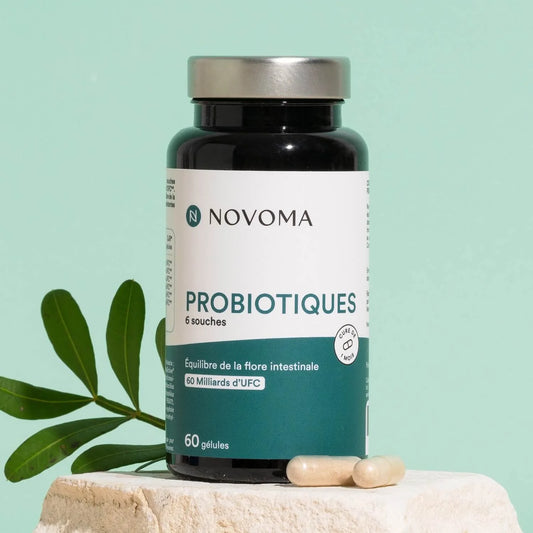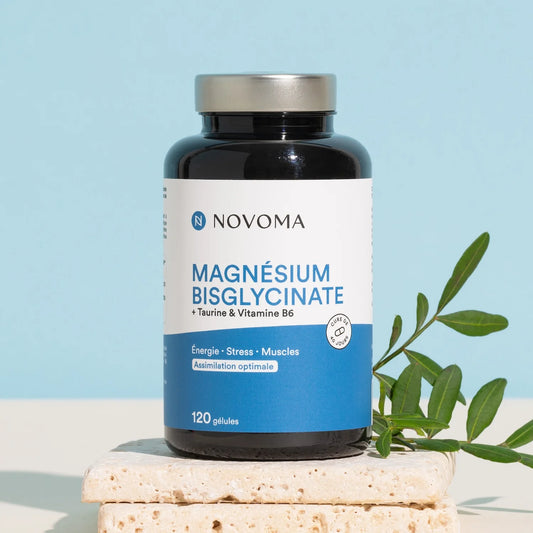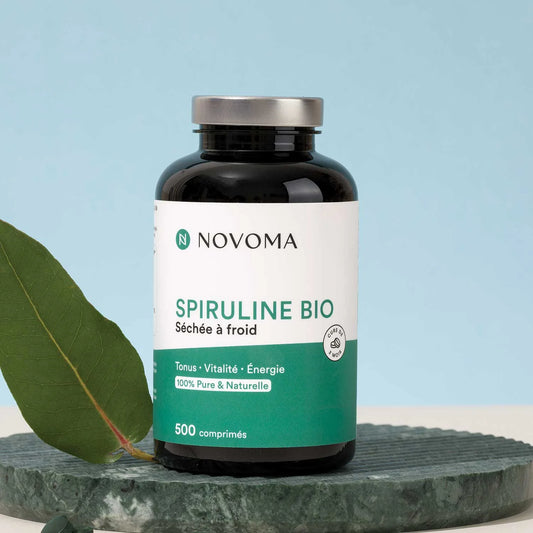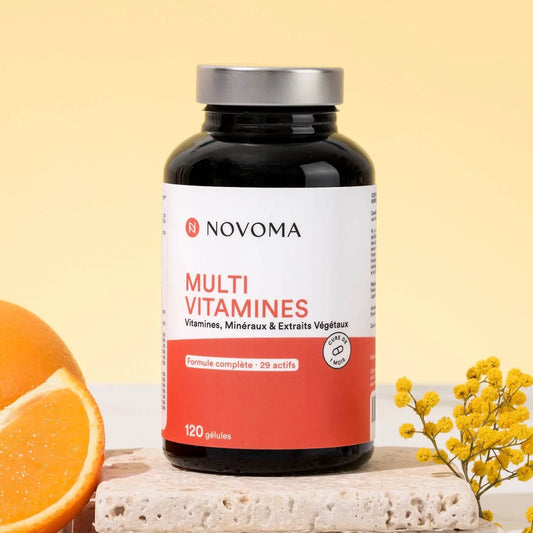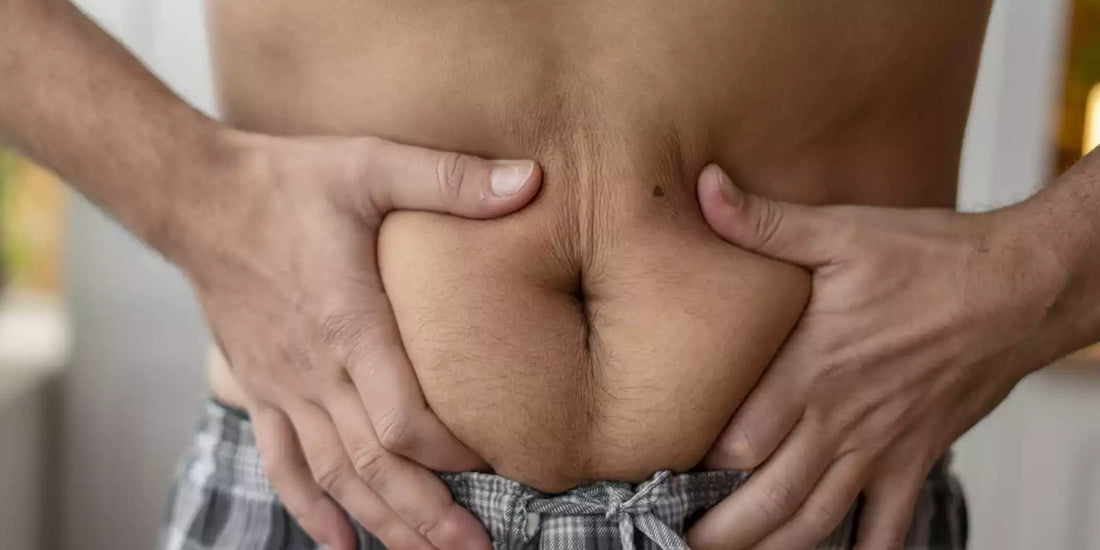
Rebuild your intestinal flora in 10 tips to free your intestine
Our digestive system is populated by micro-organisms that live in harmony with our body. This intestinal flora, also called microbiota, plays a major role in the functioning of the digestive tract: from digestion to the absorption of nutrients, but also in the regulation of the immune system.
When our microbiota is damaged, our entire body suffers. So, to avoid getting to this point, in this article we offer 10 tips for rebuilding your intestinal flora and keeping your intestine healthy.
Interested ? Let's go !

I. But let's go back to the basics: what is the intestinal flora?
A little definition is necessary!
The intestinal flora is made up of billions of microorganisms: bacteria, viruses, beneficial yeasts. Bacteria include bifidobacteria , lactobacilli , streptococci and lactococci . Each of these bacteria has a specific role in the digestion process and in the protection of our body.
The intestinal microbiota is extremely diverse, with more than 1000 different species of bacteria. Each person has a unique gut microbiota, influenced by various factors such as genetics, environment and diet, among others.
An adequate balance between these species is crucial to maintaining good gut health. 🤝
The role of intestinal flora on our well-being 🌟
The intestinal flora is involved in food digestion, nutrient absorption and immune regulation.
The role of the microbiota in food digestion 🍽️
Bacteria in the intestinal flora break down dietary fiber, which cannot be digested at all or completely by human enzymes. They produce specific enzymes that break down these fibers into simpler compounds, such as short-chain fatty acids. These fermentation products nourish the cells of the intestinal mucosa and contribute to the acid-base balance of the intestine. 🍏
The intestinal flora participates in the absorption of nutrients
The intestinal flora also promotes the absorption of certain essential nutrients, such as vitamins B and K. Certain intestinal bacteria are responsible for the synthesis of vitamin K, which plays a role in blood clotting.
To protect the digestive system 🛡️
The intestinal microbiota is directly involved in the regulation of the immune system. It maintains a delicate balance between a protective immune response against pathogens and tolerance toward components of the gastrointestinal tract. A healthy intestinal microbiota is therefore essential for balanced immunity.
II. What is the composition of the intestinal flora?
As we mentioned above, the intestinal flora is a complex community of microorganisms which mainly includes bacteria, but also fungi and other microorganisms. Each of these members exerts a significant impact on human health. 🩺
The entire intestinal flora is thus made up of probiotics and prebiotics.
Probiotics are living organisms in our intestines: bacteria and yeast that are beneficial to our body.
Prebiotics correspond to the nutrition of these microorganisms.
Probiotics and prebiotics are therefore essential to form a balanced and efficient microbiota. The whole thing, in an adult, still weighs 2 kg: this shows the place that the microbiota occupies in our body!
We recommend you
Probio Formula
Synergistic formula of 6 patented natural probiotic strains SynBalance® with clinically proven effectiveness.
- ✅ Synergy of 6 patented microbiotic strains
- ✅ 60 Billion CFU per dose
- ✅ Prolonged effectiveness
- ✅ DRcaps® gastro-resistant capsules
III. What are the needs of the intestinal flora?
The intestinal flora has specific nutritional needs to maintain a healthy balance, promote the growth of good bacteria, and prevent the proliferation of pathogenic bacteria. So, let's list its needs:
Dietary fiber needs... 🌾
Dietary fiber is one of the most important nutrient sources for the intestinal flora.
...including prebiotics
Prebiotics are non-digestible compounds that support the activity of good intestinal bacteria. They act as a “superfood” for the intestinal flora by selectively stimulating the growth of beneficial bacteria such as bifidobacteria and lactobacilli. Foods rich in prebiotics include garlic, onion, leeks, asparagus, bananas and endive.
...and a healthy environment!
Beneficial bacteria in the gut feed on dietary fiber, breaking it down into short-chain fatty acids, such as acetate, propionate, and butyrate.
These fatty acids then nourish the cells of the intestinal lining. A complex journey for a healthy and functional intestine!
IV. How to recognize unbalanced intestinal flora? 🤔
Digestive discomfort such as transit disorders, digestion or even a swollen stomach are all signs indicating that your digestive system is working slowly. Sometimes, the imbalance in the intestinal microbiota can even be seen on your skin, and can result in various imperfections. 😟
We also have a specific article on the subject: probiotic and acne .
To feel better inside and out, rebuilding your intestinal flora is the right solution.
V. But how to rebuild your intestinal flora?
Here it is finally: the famous list of 10 tips for pampering your microbiota. Obviously, there are no magic formulas. Rebuilding your intestinal flora takes several days/weeks. Above all, it’s about adopting a healthy lifestyle and establishing good habits over the long term. And, as you can imagine: rebalancing your intestinal flora begins with diet. See for yourself :
1️⃣ Enrich your diet with fiber 🍏
As we said above, dietary fiber meets the nutritional needs of our intestinal flora. Coming from fruits, vegetables, legumes and even whole grains, they nourish the good bacteria in the intestine and thus promote their growth and diversity. They also help with transit and prevent problems with transit that is too slow or too fast.
2️⃣ Consume fermented products 🥛
Certain foods are naturally rich in probiotics, which makes it easy to enrich damaged intestinal flora.
Cheese, yogurts and cottage cheese;
The sauerkraut ;
Kefir, beer (in moderation) or Ribot milk are also drinks resulting from fermentation.

3️⃣ Favor legumes and whole grains 🌾
Diet has a predominant role in the health of our microbiota. Remember to favor legumes and whole grains such as peas, dried beans, lentils, whole wheat, quinoa and spelt.
Certain fruits and vegetables are also rich in prebiotics: garlic, onion, leek or banana. Let's not forget honey, which is a significant source of prebiotics.

4️⃣ Consume polyphenols 🍫
Polyphenols are natural compounds found in plants that have antioxidant properties. They feed the beneficial bacteria in the gut. Foods rich in polyphenols include citrus fruits, green tea, dark chocolate and red wine (consume in moderation).
5️⃣ Avoid certain foods 🍔
This will not surprise you, but all foods that are a little too fatty do not play well with the microbiota.
When our intestinal flora is a little weakened, we avoid raclette and the charcuterie platter!
This delicious feast can wait until everything is back to normal.
Fried foods, red meat, hyper-processed products containing unnatural ingredients: preservatives, synthetic sweeteners and other emulsifiers should also be avoided.
And of course, alcohol abuse is not recommended to maintain good health.
6️⃣ Supplement yourself with food supplements 💊
It is possible that your intestinal flora is deteriorated for multiple reasons, such as following antibiotics. Using food supplements rich in probiotics can help you restore your intestinal flora more effectively.
At Novoma, we have developed a probiotic complex composed of 6 microbiotic strains encapsulated in a gastro-resistant vegetable capsule.
This is enough to support your balanced diet and quickly find an intestine in great shape .
7️⃣ Eat slowly 🍽️
Another tip for preserving digestive functions is to eat slowly. Part of digestion already begins in the mouth with chewing. Eating slowly helps improve this predigestion phase. Food is thus more easily assimilated when it comes into contact with the intestinal flora.
8️⃣ Practice physical activity 🏃♀️
Regular exercise stimulates intestinal motility, that is to say the movement of the muscles of the intestine. This contributes to better evacuation of waste from your digestive system, thus avoiding stagnation which could encourage the proliferation of unwanted bacteria. Physical exercise also minimizes problems with slow transit.
Sport is known to reduce stress and we know that it can impact the composition of the intestinal microbiota. By practicing physical activity that you enjoy, you create an environment more favorable to microbial diversity.
9️⃣ Be zen and relax 🧘♀️
Which brings us directly to the next point which is about controlling your stress. Stress has a whole host of negative impacts on our body, including our intestine and intestinal flora.
Meditation and self-control exercises can be beneficial for managing your daily life, but also for managing your digestive well-being.
🔟 Sleep well 😴
Good sleep also helps reduce stress. Sleep also affects the regulation of appetite and eating habits. Additionally, during sleep, the body goes through cellular regeneration processes, including those of the intestinal lining. Quality sleep can contribute to a healthy intestinal lining.
Our microbiota plays a role not only in our digestion, but also in our immunity and overall well-being. The ten tips we've shared are like little nuggets to free your gut and feel better inside and out.
So take the time to eat healthily, exercise, relax and sleep well. You will then be able to rebuild your intestinal flora by offering yourself better digestive comfort.
Take care of yourself and your precious microbiota! 💚







